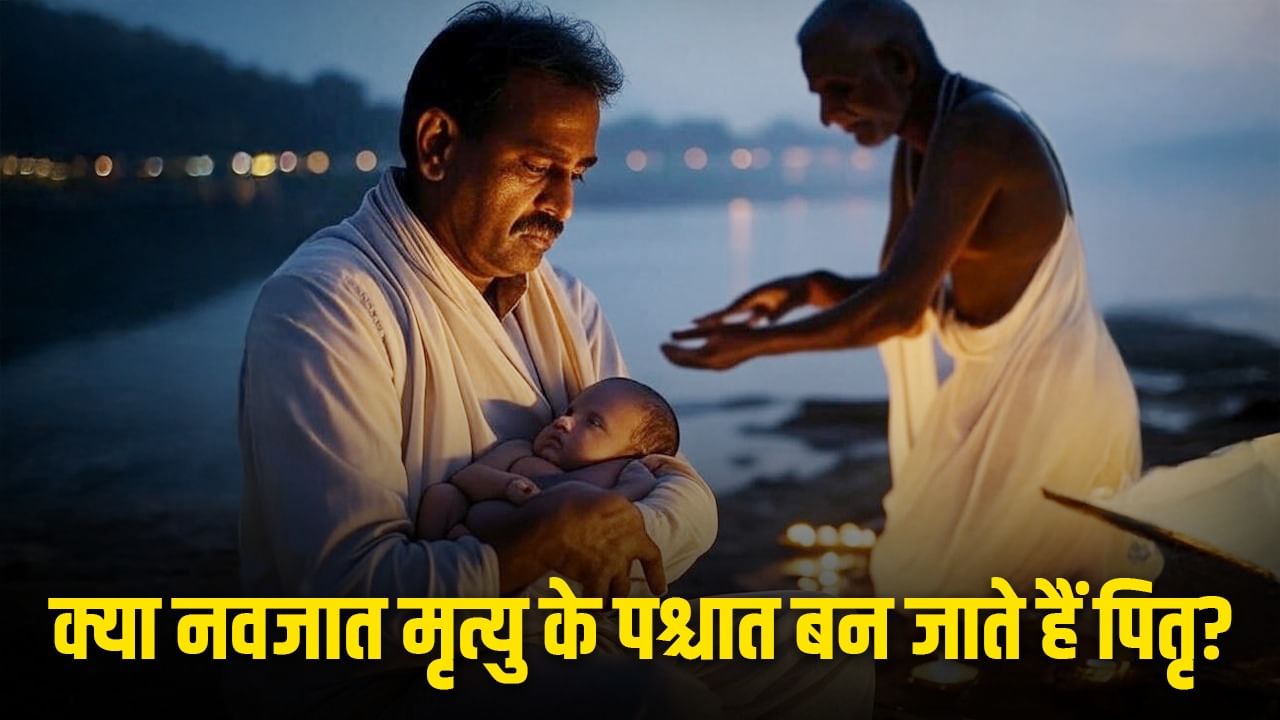Are newborns also called Pitra after death? There is a clear answer in scriptures
The secret of Garuda Purana: The importance of Pitrupaksha in Hinduism is extraordinary. During this time, every family performs Shraddha, Tarpan and Pinddaan for the peace of the soul of their ancestors. It is believed that by doing this, the blessings of the ancestors are given and Pitridosh is removed from the life of the descendants. But in the meantime, a question always confuses people, does a newborn or young children, who die untimely, also fall under the category of ancestors? Is it necessary for them to perform Shraddha?
The importance of Pitrupaksha is immense in Hinduism. During this time, every family performs Shraddha and Tarpan for the peace of the soul of their ancestors. But it is clearly stated in the scriptures that after the death of the newborn, it is not performed as a shraddha, because he does not fall under the category of Pitra. Garuda Purana calls it “child-gati” and it is believed that such souls soon take rebirth.
The real meaning of the word ancestor
The word Pitra is not only for the normal mortality. Dharmashastra says that Pitra is those who have lived household life, married, have brought forward the dynasty tradition by producing children. Such ancestors find a place in Pitriloka after death and are satisfied with tarpan or shraddha. This is the reason that the entire law of Pitrupaksha has been created for them.
What is said in Garuda Purana?
It is clearly mentioned in Garuda Purana and other scriptures that unmarried person or those who did not have children, do not get a permanent place in Pitriloka. A newborn baby, an infancy or childhood soul is called “child-gati”. The next birth of such children is quick, so they do not go to Pitriloka and become ancestors. That is, the children who have not seen the household state of life, they do not go to the category of ancestors.
What are the rituals on the death of a newborn?
If the infant dies in a family, then the family has to perform only a namittika rites and sutak. There is no rule of Shraddha, Pindadan or Pitra Tarpan for them. The reason for this is that he neither did any deeds in the world nor carried forward the dynasty tradition.
Difference between the souls of fathers and newborn
The soul of the ancestors gives satisfaction from tarpan because their descendants are their karma and future. But the soul of the newborn has no relation with any dynasty tradition. Dharmashastra says that such souls quickly rebirth, so only simple rites and remembrance of God is sufficient to prevent them from wandering.
Its message from religious terms
This recognition also gives a big message, the life of the baby may be small, but his soul soon enters the new body. She does not join the category of ancestors, so she does not need the rituals of Pitrupaksha. The scriptures have made separate rules for every stage so that rituals do not become a burden, but the speed of the soul can be easy.
The scripture clearly states that newborn baby is not called Pitra after death. In the ancestral category, those who got married and lived the household life and carried forward the dynasty. Therefore, there is no law of Shraddha for a newborn or child. The family has to perform only a namittika rites and pray to the divine that the soul will soon get a good birth.
Disclaimer: The information given in this news is based on religious beliefs. TV 9 India does not confirm this.
